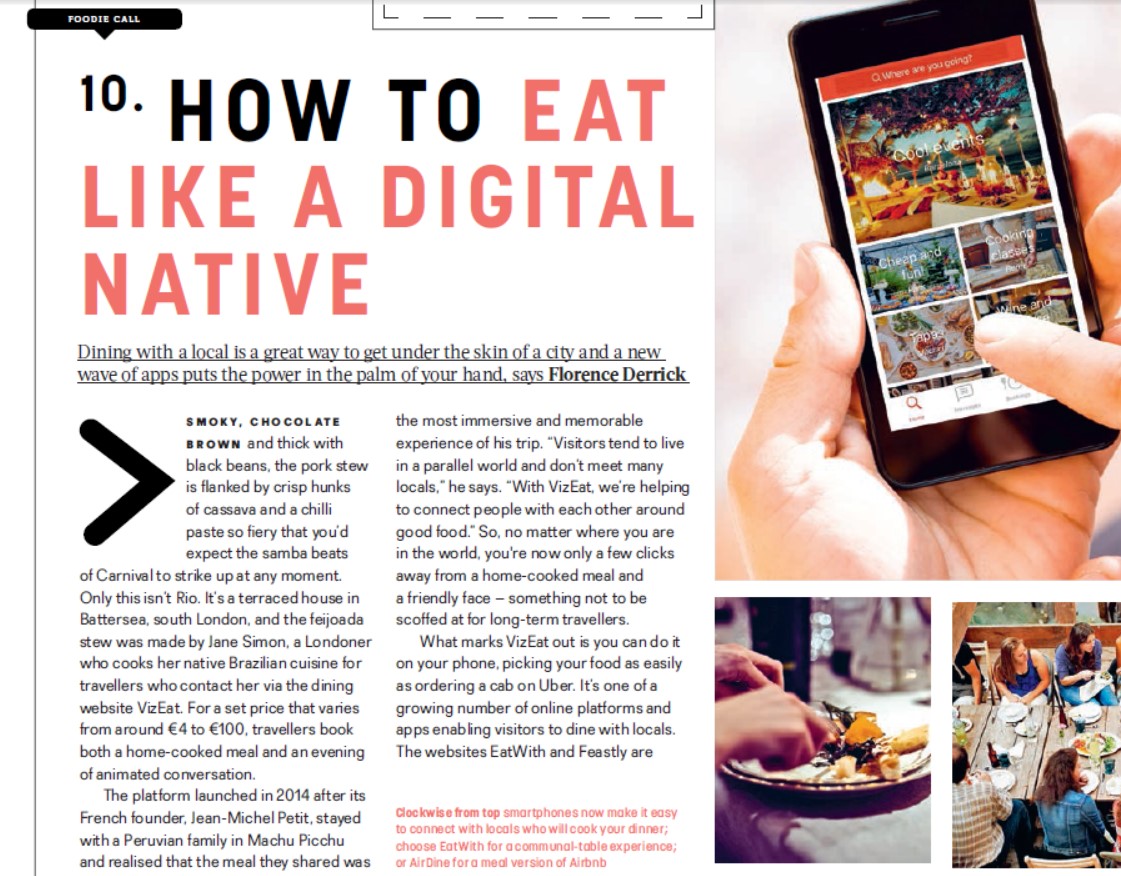Smoky, chocolate brown and thick with black beans, the pork stew is flanked by crisp hunks of cassava and a chilli paste so fiery that you’d expect the samba beats of Carnival to strike up at any moment. Only this isn’t Rio. It’s a terraced house in Battersea, south London, and the feijoada stew was made by Jane Simon, a Londoner who cooks her native Brazilian cuisine for travellers who contact her via the dining website VizEat. For a set price that varies from around €4 to €100, travellers book both a home-cooked meal and an evening of animated conversation.
The platform launched in 2014 after its French founder, Jean-Michel Petit, stayed with a Peruvian family in Machu Picchu and realised that the meal they shared was the most immersive and memorable experience of his trip. “Visitors tend to live in a parallel world and don’t meet many locals,” he says. “With VizEat, we’re helping to connect people with each other around good food.” So, no matter where you are in the world, you’re now only a few clicks away from a home-cooked meal and a friendly face – something not to be scoffed at for long-term travellers.
What marks VizEat out is you can do it on your phone, picking your food as easily as ordering a cab on Uber. It’s one of a growing number of online platforms and apps enabling visitors to dine with locals. The websites EatWith and Feastly are forums for local chefs to invite travellers into their homes for gourmet meals all over Europe, while an Airbnb-style app, AirDine, which launched in Sweden in February, provides the same service as VizEat. It’s due to roll out across the rest of the continent by the end of the year.
The unique appeal lies in the opportunity to experience a new culture. “People aren’t looking for a replacement for restaurants – it’s a totally different experience,” Petit says. “We no longer want to just be tourists – we want to understand local life and to experience it for ourselves.” The dawn of these platforms has facilitated the kind of cross-cultural exchange that feels most natural over a home-cooked meal. And now that 65% of Brits own
a smartphone, their migration to app form is the inevitable next step.
What’s in it for the hosts? These platforms can be used as a tool for aspiring chefs to test out new recipes and build a reputation. “Feastly gave me the opportunity to avoid the constraints of a normal restaurant,” says chef Geoff Reed, who uses the app. “It gives guests the confidence to sign up for a dinner that isn’t solidified until moments before they arrive, so I have much more flexibility.”
Yet, for most, the social element remains the driving force behind the trend. “I love people – their cultures, values, and differences,” concludes Simon. “Dining with someone else is already valuable. To do so while you’re travelling is just amazing.”
